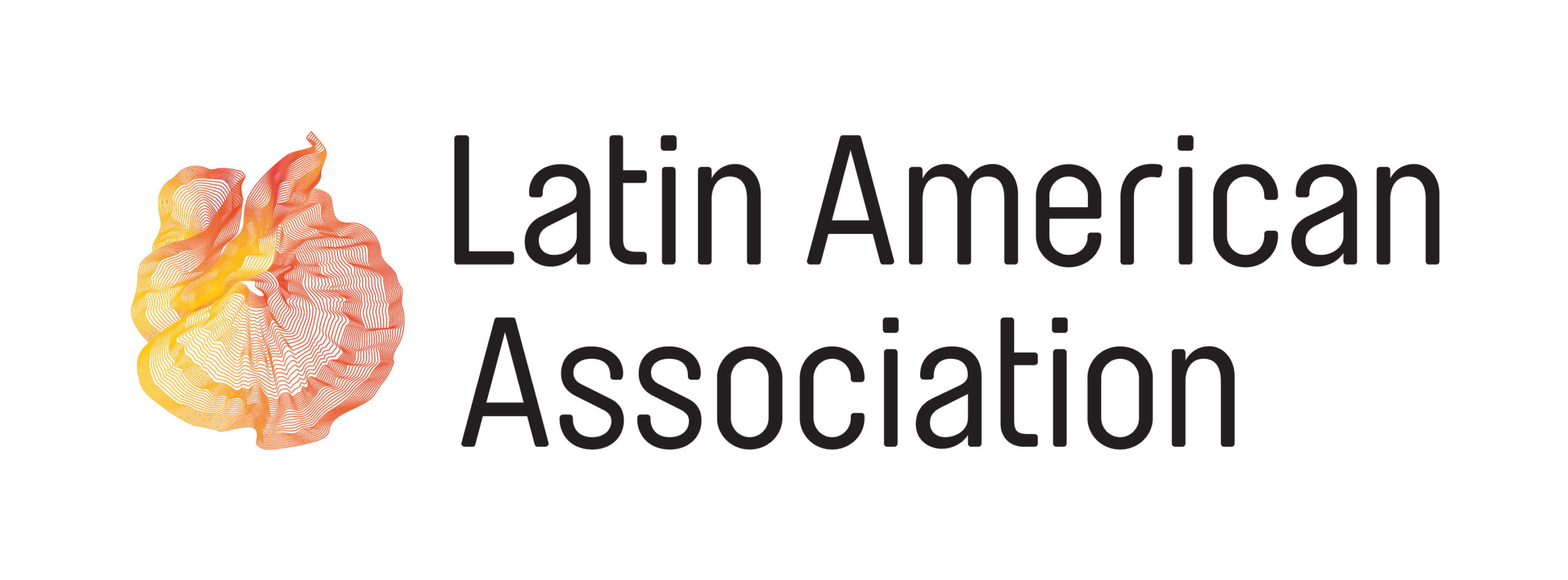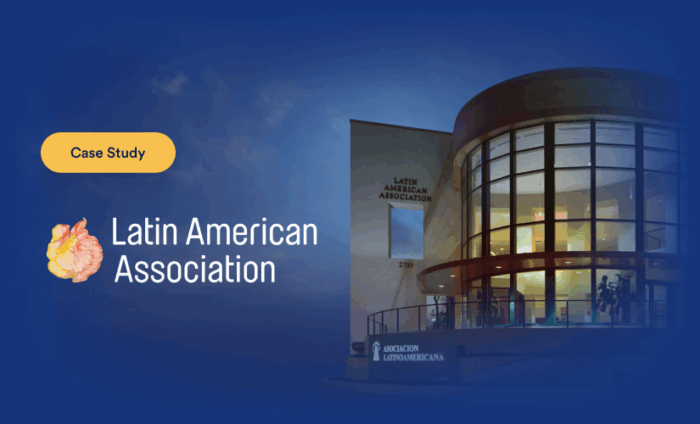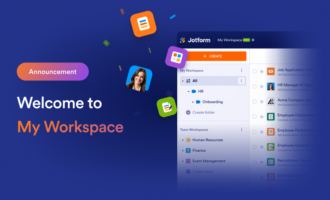
Latin American Association Case study results at a glance
Rental assistance grant funds distributed in 6 months
$2 million
Decrease in time spent on reporting
50%
# of families awarded rental assistance in 6 months
394
Imagine you work for a nonprofit that provides services for nearly 25,000 people a year, helping them access everything from essentials like food and housing to educational programs and legal aid. That’s a lot of information to collect and manage.
Now imagine you have to do it all with paper forms and a smattering of disconnected Excel spreadsheets.
That was the challenge faced by the Latin American Association (LAA), an Atlanta-based nonprofit focused on empowering the Latino immigrant community in Georgia by providing comprehensive support services. Its goal is to provide “fair access to opportunity for our immigrant community.”
LAA’s director of operations, Catherine Warren, knew that the organization could accomplish so much more with a better way to manage its data. It needed a tech solution that would allow it to
- Help more people get the support they need more quickly
- Standardize the data it collects, so that it is accurate, easily accessible, and actionable
- Centralize information in one place
- Ease the administrative burden on staff
The challenge: Paper-based systems and scattered spreadsheets
Before the COVID pandemic, says Warren, LAA used paper forms and clipboards to conduct client intake. When someone came in or called to access services, they would fill out a paper form. A social worker would complete additional forms with them by hand, depending on what type of services they received.
When the pandemic hit in 2020, LAA started providing services remotely, over the phone. The social work team started to use Excel spreadsheets instead of paper forms to log information.
Unfortunately, says Warren, “They weren’t really making sure data was formatted correctly or that the appropriate things were in the appropriate columns of the spreadsheet. They would create new spreadsheets every month to track cases.”
As a result, client information was spread out in disconnected spreadsheets, unsearchable and inaccessible to the organization as a whole. The information collected also wasn’t recorded in a standard format, so it was difficult to sort and analyze.
This haphazard system made it nearly impossible to create reports, find individual records, or get a holistic view of what was going on in the organization.
The lack of a central, digital platform affected other program areas too — like ESL class registrations, which required manual payment processing and complicated class placement decisions. “When I started,” says Warren, “we were still having people line up and taking payments at a card terminal or [taking] a lot of cash payments.”
In short, it was difficult to reconcile payments, track metrics, report outcomes, and respond quickly to evolving community needs.
Now our receptionist can fill out the intake and it maps to our social services, [providing] more detailed triage for the client.
Catherine Warren, Director of Operations, Latin American Association
Collecting consistent data — and making it accessible
Warren and her team saw an opportunity to make all of LAA’s processes easier for everyone. The solution? Jotform Enterprise.
For client intake in particular, she says, “Moving to Jotform really allowed us to standardize this process and give us a client-facing form for folks to fill out digitally instead of us doing it on the back end.”
With help from LAA’s Jotform Enterprise customer support team, Warren and her team were able to set up an automated workflow connected to an online intake form. Once clients fill out the form, they’re routed to the services they need. This workflow can automatically assign clients to the appropriate social worker in a trackable system. A staff member can also assign specific social workers to cases by clicking their name in a column in Jotform Tables.
“Due to some budget cuts, we had to redo the way we were doing intake here. And so now our receptionist can fill out the intake and it maps to our social services, [providing] more detailed triage for the client,” she says.
Not only does Jotform allow LAA teams to collect information in a uniform way, it also allows the organization as a whole to control access to that information, whether that’s making a form available to everyone or limiting who can access submissions to specific forms. “The really big thing I think for us moving to Enterprise,” Warren says, “was the admin control and being able to see who has access to what.”
If our CEO asks me how many clients have we seen this month so far, I can easily go to Jotform and click a button to see how many people have come through our doors or called our phones. I think the reporting times were cut in half.
Catherine Warren, Director of Operations, Latin American Association
Opening up new funding opportunities
Warren says Jotform Enterprise has also allowed LAA to respond more quickly to funding opportunities. In one example, the organization was offered a $2 million grant to provide rental assistance to qualified applicants. The challenge? It needed to be spent in a six-month period.
That meant LAA staff needed to accept applications, screen applicants for eligibility, and approve funds for thousands of people.
“Our phones were ringing off the hook,” says Warren. “Jotform allowed us to send people a link to fill out a form for rental assistance. From there, we could screen them and then follow up with them if they were eligible.”
Because they were able to screen and sort clients efficiently with Jotform, LAA staff were able to provide assistance more quickly to families that needed it. Warren says those capabilities “doubled the number of families we were able to serve” by speeding up the process. In all, they received 2,848 applications and were able to help 394 families — a total of 1,398 people.
If they’d had to spend time manually assessing paper application forms, they wouldn’t have been able to disperse the funds to enough eligible clients before the funding expired. Within the six-month time frame, LAA successfully distributed all $2 million in assistance.
Lightning-fast reporting
Like any grant-funded organization, the Latin American Association needs to periodically report to funders on what it’s accomplished — like how many clients received food assistance, legal services, or educational support in a given time period.
Having a central source of consistent data saves staff hours of time on this type of reporting. It also impresses funders, increasing the likelihood that they will continue to support LAA in the future.
The real-time reporting Jotform Enterprise provides can also inform decision-making, helping leadership identify trends or developing issues they need to address.
“If our CEO asks me how many clients have we seen this month so far,” says Warren, “I can easily go to Jotform and click a button to see how many people have come through our doors or called our phones…. I think the reporting times were cut in half.”
More time for what matters
Jotform Enterprise empowered the LAA team to respond quickly to funding opportunities, serve more members of their community, and operate more efficiently. From digital intake forms to real-time reporting and automated workflows, it provided tools that are now integral to their operations.
And while Warren says it’s difficult to put a number on the amount of time saved with Jotform Enterprise throughout the organization, one thing is for sure: Staff are able to use the time they save for deeper, more strategic work.
Warren says that means “time being used to deal with more pressing issues or clients that really need more work to be done with them, more intensive case management. That’s a huge thing that we’re able to do because we’re saving the time.”











































































































Send Comment: